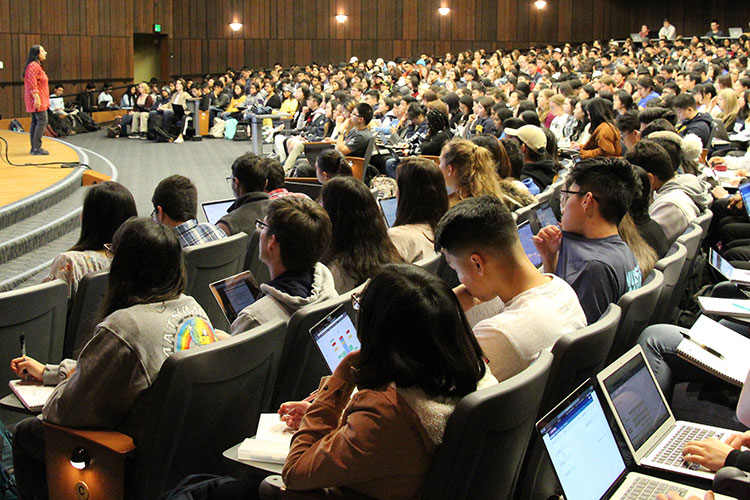Noor-Ul-Ain Ali, ’22, practically grew up in the shadow of the Campanile, in the neighboring east bay city of El Cerrito, and says that her first glimpse of what it might be like to go to college was as a participant in the University of California’s Early Academic Outreach Program, which assists underserved high school students with access to higher education. She didn’t even consider exploring STEM classes when she arrived at Berkeley as a first year student suffering from imposter syndrome, and she certainly had no plans to attend data science classes. “I didn’t really know what data science was, beyond it being a STEM buzzword,” she said. Four years later, she holds a bachelor’s degree in data science, and is preparing to begin a master’s program at the School of Information.
Ali was chosen to receive the Sharon X. Lin and Andrew R. Bullen Graduate Fellowship in Data Science for 2022–23. This fellowship supports one incoming 5th Year Master of Information and Data Science (MIDS) student who shows a commitment to gender equity within the program. Alumni Sharon X. Lin (’11, MIDS ’15) and Andrew R. Bullen (’10) established the fellowship in 2020.

As a Berkeley sophomore, Ali enrolled in Data 8, the University’s foundations of data science course. The class bills itself as an entry-level class for any major, but Ali found herself challenged. “It was a class that I really struggled with,” she said. “A lot of people are drawn to what they’re good at; data science was something I had to get good at.” She credits an undergraduate student instructor (UGSI) for being a great help to her, “because she encouraged me to claim my space in an emerging field of study I was interested in and motivated me to continue learning outside of my comfort zone.”
Because Ali was able to see herself in the UGSI, she gained confidence and skills: from Data 8 she went on to learn the programming language Python, then the Jupyter platform, and soon she was teaching high school students as part of the Division of Computing, Data, Science and Society’s Unboxing Data Science Program and developing Jupyter notebooks as a Developer Team Lead for the modules curriculum team at CDSS.
That one challenging class — Data 8 — set her on the path she’s on now: one where hopes to apply her skills at the intersection of data science and education. She plans to be active in Women in MIDS and envisions herself using the expertise she’ll gain in the MIDS program to effect change in education, specifically in the service of low-income, first-generation, and historically underrepresented students.
She chose MIDS because “I want more in-depth training, more practice, more project experience,” Ali said. “Before I try to do my part in reimagining what data can be in a way that does not harm communities, I need to acquire deeper knowledge of data science methods and how to extract insights from data to inform peoples’ experiences without exploiting them.”
“Because,” she continued, “I want to use data to benefit both the community I grew up in, and the community I live in now.”










